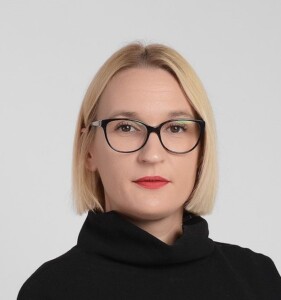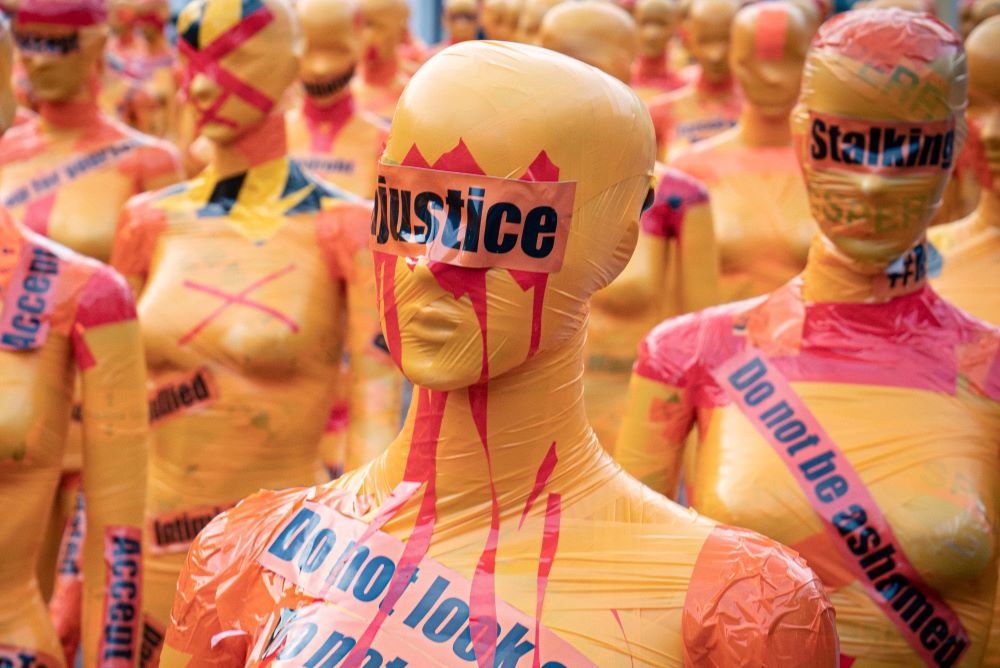No crime raises such a drumfire of moralizing excuses for the perpetrators and moralizing accusations against the victims as the cases of sexual violence.

Irena Cvetkovic
Testimonies and speaking-оut of women who have been victims of sexual violence and harassment are beginning to flood the public discourse in the region. Starting with the ‘metoo’ movement, through the local Balkan variants of it (like the example of #SegaKazuvam from Northern Macedonia), the Public Room scandal and, finally, the openings of the case of Marija Lukic and the case of the acting professor Mika Aleksic, all these represent tectonic shifts in the millennial silence about this kind of violence. What does a small country like Northern Macedonia gain from all this?
Violence is an act of using force or power that is intended to hurt or harm another person. The bully or the abuser can abuse his or her victim in one or more ways – physically, psychologically, emotionally, sexually, verbally, etc. Physical violence, especially the more severe forms of physical violence, often have their visible manifestation on the victim’s body. Other forms are often invisible.
For family, for friends, but also for society. Man has 3 ways of reaction when faced with danger: by fighting, by running away or by freezing. In cases of sexual violence, the most common human response is freezing. At that moment, the body and psyche freeze – share many of the victims around the world. In our country, the system remained frozen by the scandal with the online group Public Room, where over 100 women were sexually harassed, their private intimate photos and videos, phone numbers and addresses were shared, etc. One year after the scandal erupted, the group still existed; women filed charges with police and prosecutors, and the system remained frozen, until a powerless girl decided to report her case to a television station in addition to the police report. Since then, in less than 48 hours, the group has been closed, 4 suspects have been detained, and the victims are starting to receive calls from institutions that are at least 6 months late.
The Margins Coalition, the organization I work for, has recently spoken to dozens of girls who have been victims in the Public Room. They all have different stories, but also one thing in common – a trivialization of their experiences and sufferings by the police. The excuses ranged from the fact that the police could not control the internet, through the fact that the law protects only underage girls from this type of crime, to allegations that victims brought it on themselves because they were photographed in sexual connotations or intimate acts.
No crime raises such a drumfire of moralizing excuses for the perpetrators and moralizing accusations against the victims as the cases of sexual violence. The emotional response (which is always a more valid experience than the rational one) is silence, shame and guilt among the victims, and motivation, self-confidence and a sense of control among the perpetrators. Those caught between these two positions of a criminal and a victim are not excluded, but become accomplices of the party they choose. The criminal expects and hopes for silence and status quo of the situation, and the victims need a voice, a cry and changes that are painful but necessary. The state and society can choose between these two positions, but they need to be aware of whose position they have chosen.
People are starting to speak out about sexual violence. The testimonies of the victims and the pressure of the public urge the institutions to start doing their job, but that is a very bad sign. If the public has to be disturbed and the victims have to be traumatized and forced to share their trauma publicly so that the institutions start working on a crime involving hundreds of victims (like the Public Room case), then something is dangerously rotten in our system. An institutional solution is needed, without much fanfare and spectacle; it is necessary to bring justice to the victims, to sanction the perpetrators through a fair investigation and court procedure and to re-socialize all those who suffered in the period / processes. The system can be defrosted only through systemic reforms, not through persecutions, spectacles and dramas.
Irena Cvetkovic is a doctor of gender studies. She is a human rights activist in marginalized communities. She is currently the Executive Director of the Margins Coalition.



Leave A Comment